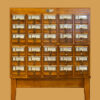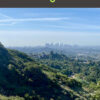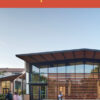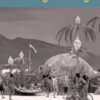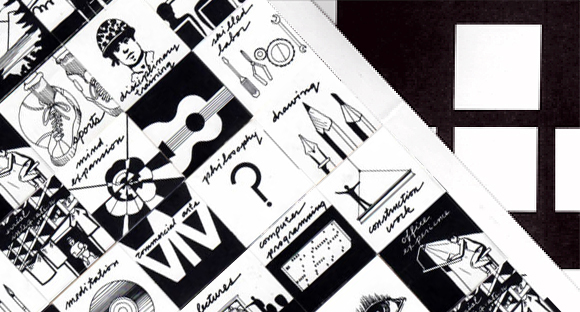
Dearest Jen,
The discussion class that I have on Tuesdays deals with issues of design and communication, and in particular the interdisciplinary nature of the architectural profession. Our professor, Clark Kellogg, inspires us in every lesson, and today we got to hear a panel of speakers who came out of architecture school and are each doing something completely different, 25+ years on.
One is a freelance environmentalist / graphic designer / strategist / consultant; one is a multi-disciplinary architect / project manager / construction consultant / PhD student writing a dissertation on “collaboration”; and one is an architectural magazine editor / teacher / architect / with history as an associate dean, department chair, and writer.
They are all successful, but they never took a direct path to where they are in the present. Most of their lives are determined by unforeseen opportunities that come along the way, and passion is the predominant, underlying factor that drives them each day. I guess it is a fair trend for the “P” generation like ourselves, who indulge in the luxury of doing only the things that we enjoy—which seems exceedingly selfish; but to look at it in a positive light—why be stuck in a monotonous job to pay for things that only bring momentary pleasure—when you can do work that you really enjoy, even if it means your rewards are limited, when you are going to be working most of your life anyway?
We are definitely living in a world of homeless intellectuals, a society based on transferable knowledge. One is no longer confined to a single disciplinary career for the rest of his/her life. What’s interesting is that not a single person in this class wants to be “for sure” a registered architect when they graduate. (Most of my colleagues are in their final semesters of an undergrad program.) In fact, nobody is interested in architecture as it is perceived in a traditional sense.
We are living in a world of multiple citizenship, in which our origin, culture, eating habits, and social status are of little consequence when compared to our ability to be flexible, open-minded, adaptable, and mobile. In a globalized context, a notion of leading the life of the Nomads seems now to be idealized, romanticized, and probably in the process of being actualized.
We find multiple sites of dwelling and find, within ourselves, multiple identities in the global, multi-cultural, cosmopolitan society of the 21st century. Our values are no longer limited by capitalist accumulation of goods, because the idea of affluence is experienced by a greater number of people (yes, of course this couldn’t be further from the truth when, yes, people in the third world are being continually exploited and malnourished)—our values are internalized, we become less consumed by the outside, but more consumed by the self. Our values depend less on those expressed in the public, but focus more on the wisdom and knowledge from within. It seems that our greatest teacher, and our greatest enemy, both reside within us.
We no longer know what to do with ourselves.
We no longer know who we are.
We no longer know where we are going.
We rejoice at finding ourselves, yet we recoil at the loss of a huge part of ourselves—tradition, convention, and the familiarity and comfort of indifference. Yet we experience joy in being able to possess nothing, because we are not hindered by the pain of loss when there is nothing to be lost.
This is the reality.
There hasn’t been a better time to find out who we are and to figure out why we were brought into this world.
What is your identity?
I am delighted to announce that I am well on my way to finding out.
Love,
Annie
Author Annie Ja Yeun Lee is an exchange student from the University of Auckland, New Zealand, currently majoring in architecture at UC Berkeley. Her current passion lies in bridging the gap between theory and practice in multiple facets of life.
Originally published 2nd quarter 2005, in arcCA 05.2, “Other Business.”


